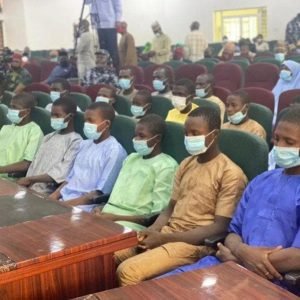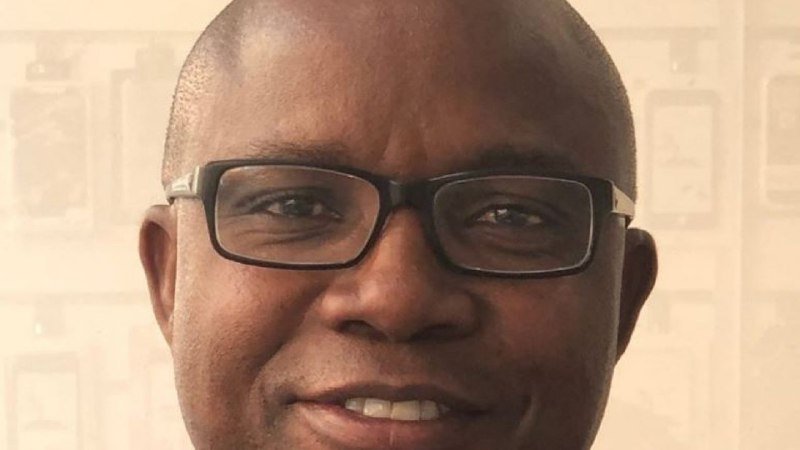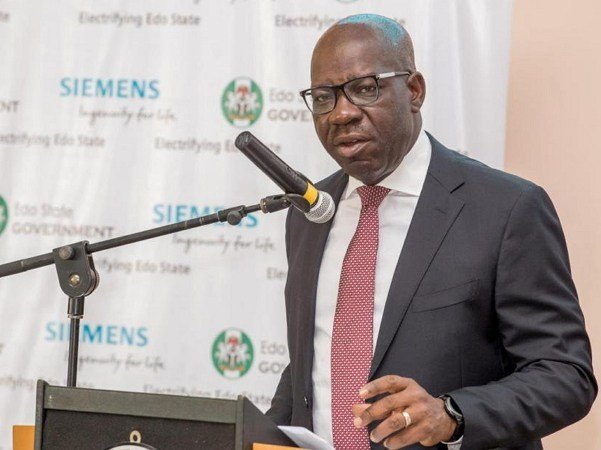Nigeria’s descent further into the pit of state failure is becoming embarrassingly evident in its inability to protect schoolchildren from banditry. It is worrying that seven years after the abduction of 276 girls of Government Girls Secondary School, Chibok, Borno State, which attracted global outrage, things have taken a more dangerous dimension as attacks on schools have now become commonplace. Though the news that 27 students at the Forestry College, Kaduna regained their freedom on Wednesday after 56 days in the kidnappers’ den offered a crumb of comfort, there is a seeming lack of enthusiasm by the government to secure the freedom of students when abductions occur.

Reports say that about 800 students, including those attending higher institutions, have been abducted in coordinated attacks on schools in mostly northern states in the last six months. The breakdown includes 344 schoolchildren of Government Science Secondary School, Kankara, and 80 pupils of Islamiyya School, Mahuta, both in Katsina State; 27 boys at GSS College, Kagara, Niger State; 279 schoolgirls of Government Girls Secondary School, Jangebe, Zamfara State; 39 students at the Federal College of Forestry Mechanisation, Kaduna; and 23 students at Greenfield University, Kaduna; and three students at the Federal University of Agriculture, Makurdi, Benue State.
While some of the students were lucky to be freed, others like Dorothy Yohanna, Precious Nwakacha, Sadiq Muazu and Benjamin Habilla were all brutally murdered. Several others are still in captivity, while their parents scramble to pay ransoms. Also, there have been no reports of any of the attackers being brought to book despite repeated assurances by the President, Major General Muhammadu Buhari (retd.), and state governors.
Despite the closure of schools for over six months nationwide last year, no thanks to the COVID-19 pandemic, states have once again been forced to shut over 60 mostly boarding schools in vulnerable areas due to insecurity. This is expected to increase the number of out-of-school children which is put at 13.5 million, as parents are daily being discouraged from taking their children to school. Incidentally, the northern states that are shutting down schools make up for over 80 per cent of the total number of children out of school and the area is the least developed region in the country.
UNICEF Country Representative, Peter Hawkins, argues, “At a time when the pandemic is rife, and some parents have withdrawn their children from school, or have not sent their children back to school, the insecurity and threats to educational facilities can only compound an already difficult situation.” According to him, the answer for insecurities against schools is not to close the schools down. It is to improve the security, to improve the connections between the school and the community so the community themselves offer some semblance of security. We agree.
Read Also: How Banditry Is Compounding North’s Education Woes
Indeed, the closure of schools can never be the solution to the incessant attacks. The closing of schools inadvertently fosters Boko Haram’s agenda, which is that western education should stop. To this end, the government must look for more creative ways to safeguard places of learning. Refusing to negotiate with abductors should not be the only strategy to ending such atrocities.
Unfortunately, seven years after the Federal Government inaugurated the Safe School Initiative to ensure a safe school environment for schoolchildren, things have worsened even as the $30 million raised for the programme has now become a subject of controversy. This does not portray Nigeria as a country that is ready to take education or the security of students seriously. If indeed the money earmarked for the project was diverted, those found wanting should be made to face the full weight of the law.

In the interim, security must be beefed up within and around schools, especially boarding schools located in remote areas. Governors must ensure that armed state security outfits are deployed in these schools. The common practice of employing unarmed old men to guard schools has proved to be ineffective. States can no longer rely exclusively on the Federal Government for help. Schools should be secured with perimeter fencing, alarm systems, etc. that offer the first line of defence against intruders.
Read Also: Sheikh Gumi: Kagara Abductees May Regain Freedom Today
The incessant attacks on schools are only a symptom of a bigger problem. Insecurity across the country has worsened. The Global Terrorism Index places Nigeria as the third most terrorised nation in the world. Also, Nigeria is the poverty capital of the world and is on its way to becoming the world’s unemployment capital. Crime has therefore become an easy alternative for the nation’s teeming youths. Without tackling unemployment and poverty, the crime rate will continue to soar. Nigeria desperately needs to restructure. States must be able to control their resources and their internal security more effectively. State policing remains the best option for Nigeria.
Buhari, who was elected based on his strong military experience, has clearly failed to protect the lives of Nigerians despite over N1 trillion spent on security in the last two years. Buhari must note that his legacy will be left in tatters if he fails to secure the nation. He needs to stop praising himself on what he sees as a relatively better performance than his predecessor, Goodluck Jonathan, during whose tenure Boko Haram took over parts of the North-East.
Article 26 of the United Nations Declaration of Human Rights says that everyone has the right to education. This right to education has been reaffirmed in numerous human rights treaties and declarations adopted by the United Nations to which Nigeria is a signatory. The right must therefore be protected by ensuring that children are not abducted. As Amnesty International puts it, schools should be places of safety and children should not be forced to choose between their education and their lives.
Follow us on Facebook



















